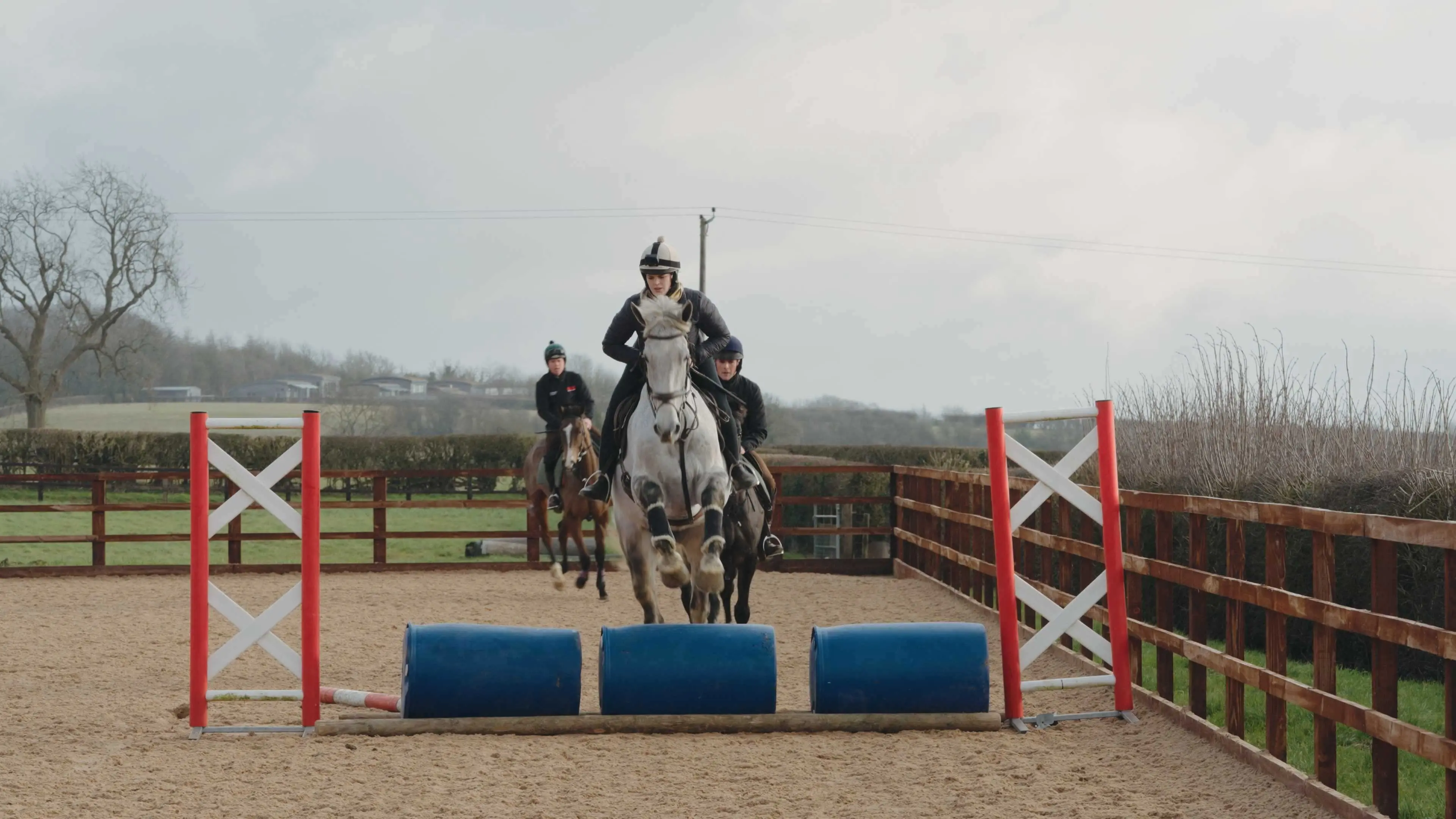TEACHING A RACEHORSE TO JUMP
Pre-training is an essential part of every racehorse's journey. Learn more about the process undertaken to help Thoroughbreds begin a career in jump racing.

Ivy Lodge Farm is a pre-training and rehabilitation centre run by former jockey Jason Maguire. In this video series Jason and fellow jump jockey Lizzie Kelly take us on the journey of a horse at a pre-training yard.
A pre-training yard is a vital step in the career of any young racehorse. Essentially a racehorse pre-school or nursery, it is the first stage in a young horse's education. Pre-training builds the essential knowledge and skills to allow a racehorse to thrive in licensed training and eventually a race itself.
The first step on the journey is building a bond between the horse and rider. This process is known as 'breaking in'.
After a horse has built up the strength and coordination to carry a rider the next stage is learning to be ridden. For racehorses in particular, learning to ride as part of a group is crucial to their development. They will be taught to walk, trot, canter and eventually, gallop.
Many facilities, including Ivy Lodge Farm, will use deep sand gallops to help strengthen the horse's muscles while keeping a steady pace.
Once a horse is comfortably riding away with other horses it's time to learn to jump.
Thoroughbreds are perfectly adapted to run and jump at speed. Its in their DNA. But like any athlete it takes time to hone a skill. Therefore each horse will have a tailored training programme allowing them to fulfil their potential and comfortably and confidently take on obstacles.
The last stage in the pre-training journey is to bring together a horse's new skills and prepare them for life on a busy racing yard. A racehorse in licensed training will follow a structured daily routine under the careful guidance of a trainer. For jump horses this includes schooling over the obstacles used on race day including padded hurdles and steeplechase fences.
Every Thoroughbred is unique, and for some this will be the end of their racing journey. For the majority of racehorses (approximately 70% of foals born in Britain) they will leave pre-training and enter licensed training. Some will progress straight into breeding never having trained to race.
For other horses a more suitable career may be identified such as eventing, polo or simply recreational riding. For more information on the alternative careers that racehorses may go on to visit HorsePWR - Life After Racing.